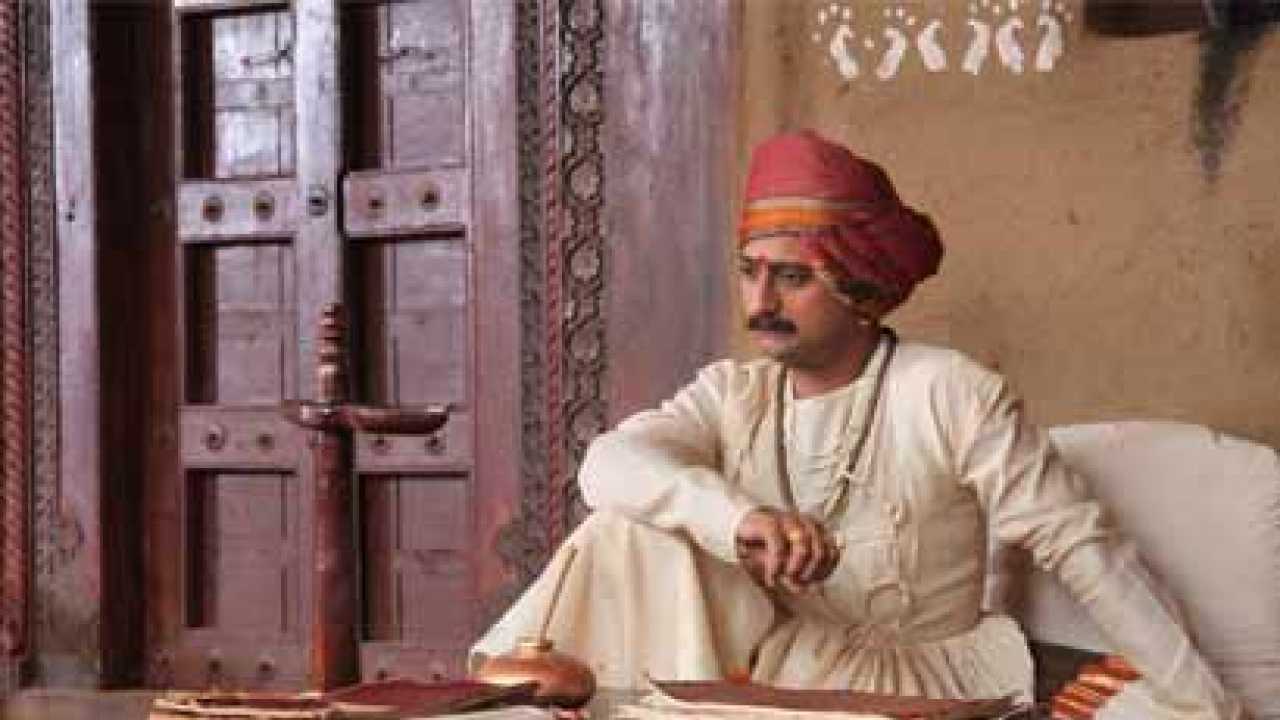
Film: Tukaram (Marathi)
Director: Chandrakant Kulkarni
Cast: Jitendra Joshi, Pratiksha Lonkar, Veena Jamkar, Radhika Apte, Yatin Karyekar, Smita Tambe, Vikas Patil, Sharad Ponkshe
Rating: ***1/2
Armed with poetry, they enriched the culture, thought and intellect of Maharashtra. The ‘sant parampara’ (saints’ legacy) also left Marathi cinema enriched. Vishnupant Damle made biopoics on both Sant Dnyaneshwar and Sant Tukaram. Anyone who grew up in the DD era, is most likely to have seen both the films multiple times.
Sant Paramparaa arose out of the need to spread knowledge, a new thought across the masses. The saints used a popular form of communication then – abhanga (poetry) and kirtan – to serve this purpose. As the era changed, the vehicle to carry the message to the masses changed, people changed and yet, Dnyaneshwar, Tukaram and Eknath Maharaj’s (among many others, of course) messages remained relevant. The 1936 film Sant Tukaram was popular not just as a film but also for the thought it stood for, even three centuries after Tukoba wrote the Gaatha. And in the new millennium, though internet has changed the way we think, live and find knowledge, Tukoba is back.
Chandrakant Kulkarni takes on the daunting task of bringing Tukaram Bolhoba Ambile’s journey into becoming Sant Tukaram. To begin with, for us to compare this film to the 1936 classic that we worship, will be downright unfair.
As his friends hunt for him, young Tukaram is found hugging Vithoba in the family’s ancestral temple. As the young boy speaks of Vithoba as a friend, his mother worries about inviting the wrath of Vithoba. For me, this was a bit bizarre. I have always seen Vithoba being referred to as Vithumaulee, as a God who is endearing and to imagine him being enraged at his devotees is just plain absurd. But one has to halt here and remember that Tukoba’s mother lives in 17th Century. She doesn’t have the privilege of knowing that Gods can be approached informally, a privilege we enjoy because of our saints.
While his elder brother is lost in worship, Tukaram follows his father around, trying to understand how his father maintains a balance between work and worship. “Is the Vitthal in our temple different form the one in Pandharpur? Then why do you go to Pandharpur to meet him?” asks young Tukaram. The question, possibly, is a stepping stone for the coming generations to look at faith and devotion from a rational, pragmatic perspective.
The first half of the film largely focuses on Tukaram’s family life where his wife Rakhma (Jamkar) has asthma and Tukaram is a pragmatic, balanced trader who shows compassion and understanding while recovering the money his family has lent out. As a famine approaches, Tukaram’s family starts perishing. The village is gripped by the need for grains and Tukaram throws open his storehouse to the villagers, who end up leaving behind nothing for his family. The first half of the film is rather melodramatic. But as Tukaram's journey within begins with the famine, you get gripped by the film. A lone sprig of green on a cracked, dried out field shows hope to bereaved, struggling Tukaram, and you feel his triumph, his eagerness. The famine disturbs the balance between the trader and the devotee and Tukaram Ambile moves further within to create poetry and thought that changed the society back then.
Considering Kulkarni wanted to bring back Tukaram on the big screen to show the relevance of his teachings in today’s world, the film achieves its goal and hence is successful.
Jitendra Joshi, an actor who was seen in comical and action roles, is an absolute delight to watch as he sheds his golden ornaments for a japmala. Joshi brings out the confusion, desperation, peace and devotion of Tukaram with precision. Knowing that he is essaying a role of a lifetime, it would have been easy for him to cave under pressure and over-play, but Joshi comfortably eases into the role and keeps you captivated without going overboard with 'performance'. To put what Joshi does with this role into words, is not difficult; it is impossible and for that reason, you must watch this film. Radhika Apte’s Awli is every bit ferocious as the character needs to be.
The first half should have been much tighter and it could have used a smaller dose of melodrama. The costumes and sets work brilliantly in taking the audience back in the 17th century. However, a small grouse I have with the film is that it is largely single-dimensional, and takes things too literally at times. Even so, it is a film worth watching because it stays with you. And despite its flaws, it is one of the best Marathi films of 2012, yet!